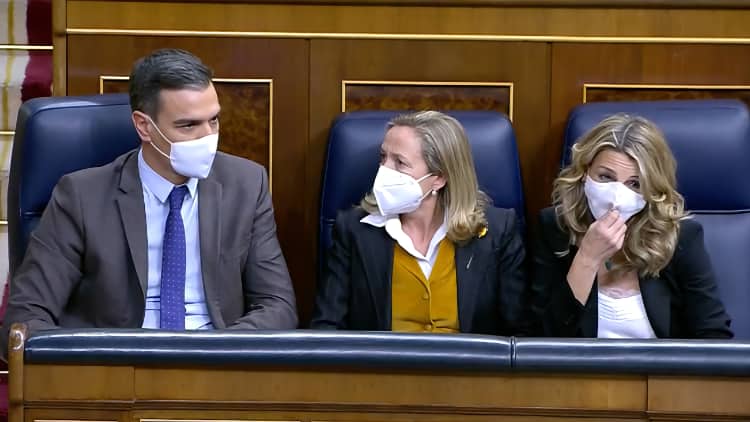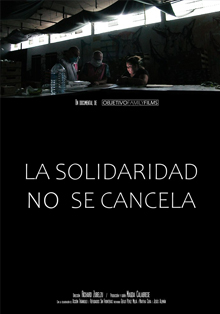Ángel Collado
The validation by Congress of the labour reform decree has guaranteed Pedro Sánchez stability in power until the end of the legislature, in December 2023.
Despite the row over the vote and the new blow to the prestige of the Congress presided over by the Sanchez loyalist Meritxel Batet, the government has been strengthened by the test of the variable geometry of its parliamentary support. Even without the help of his most pro-independence allies, such as ERC and Bildu, the head of the Executive is able to push through his projects with the help of minority groups that have hitherto been in the opposition, such as Ciudadanos.
Last week’s move was perfect in terms of the short dodge with which Sánchez has made his political career. He made opposition for years with the promise to repeal the labour legislation passed by the PP government in 2012, then forged the social-communist coalition that brought him to power in 2018 with that same promise, then promised Brussels to keep that same legislation to receive economic aid and issued a decree (he did not make a bill) to put in writing his renunciation of the counter-reform announced and agreed with the far left and the independentists.
Along the way, the chief executive has limited himself to returning power to the unions in sectoral agreements and relieved the big employers (the CEOE) of their panic to return to the labour legislation of the previous economic crisis. The decree in the form of a “reformita” with cuts in temporary contracts was a lesser evil for the employers, who gave their approval to the text, albeit reluctantly, as did the trade union centres.
But Sánchez’s great success, beyond breaking compromises without suffering any wear and tear, is his ability to manoeuvre when it comes to gathering support for these same renunciations. He is doing the opposite of what he promised his electorate and the extreme left-wing pro-independence parties thanks to the votes of the regionalist, provincial centre-right and centre-left groups (from the Canaries, Valencia and Teruel) plus Ciudadanos. Moreover, on the very day that the break-up of the parliamentary bloc of his investiture was consummated, the rejectionists (ERC and Bildu) forgave him for his betrayal and have already made appointments for future projects.
With the labour reform behind him, the rest of the legislature is looking downhill for Sánchez, at least in strictly political terms. In the next legislative changes announced, such as the housing law, he could turn once again towards the more populist or interventionist economic positions of his partners without the EU’s oversight.
Next autumn, if the bills of the same pro-independence allies rise excessively or the podemite partners insist on shooting up the public deficit even more, the head of the Executive will be left with the complicated recourse of turning again to Ciudadanos and the regionalist groups. Or directly the simplest route, which would be to extend the current accounts for the whole of 2023, the last year of the legislature.
The President of the Government has all his hopes pinned on reaching the Spanish Presidency of the European Union scheduled for the second half of next year, right at the end of his term at the head of the Executive. Until then, he will have to deal with the task of economic recovery, which has yet to get off the ground, and with the municipal and regional elections to be held in May of the same year, which will measure the PSOE’s wear and tear and the progress of a majority opposition, the PP, with the pending task of regrouping the centre-right vote in order to return to power.
In a year and a half’s time, Sánchez will have the best opportunity to show off in all kinds of meetings and appearances before the media in the run-up to the general elections. That is why he always insists that he will run out the term of office and sets the date for the end of his mandate at 2024.
For the moment, he is pushing ahead with his plans even when he does not have the support of his fixed allies on the far left and the independentistas, without the main opposition party, the PP, managing to get its act together, or even facilitating the parliamentary procedures of the government decrees with its errors.
If next Sunday in the regional elections in Castilla y León the PP’s victory falls short in the face of the rise of Vox and Pablo Casado’s party becomes dependent on Vox, Sánchez will see his basic argument for the next elections paid for. It is the tried and tested, though failed in Madrid, argument that only he, with his progressive majority (which includes communists, separatists and heirs of ETA at the national level) can prevent the extreme right from coming to power in Spain.
For Sánchez, the validation of the labour reform means overcoming the last legislative obstacle to his particular form of government and laying the groundwork for a new term in office.







